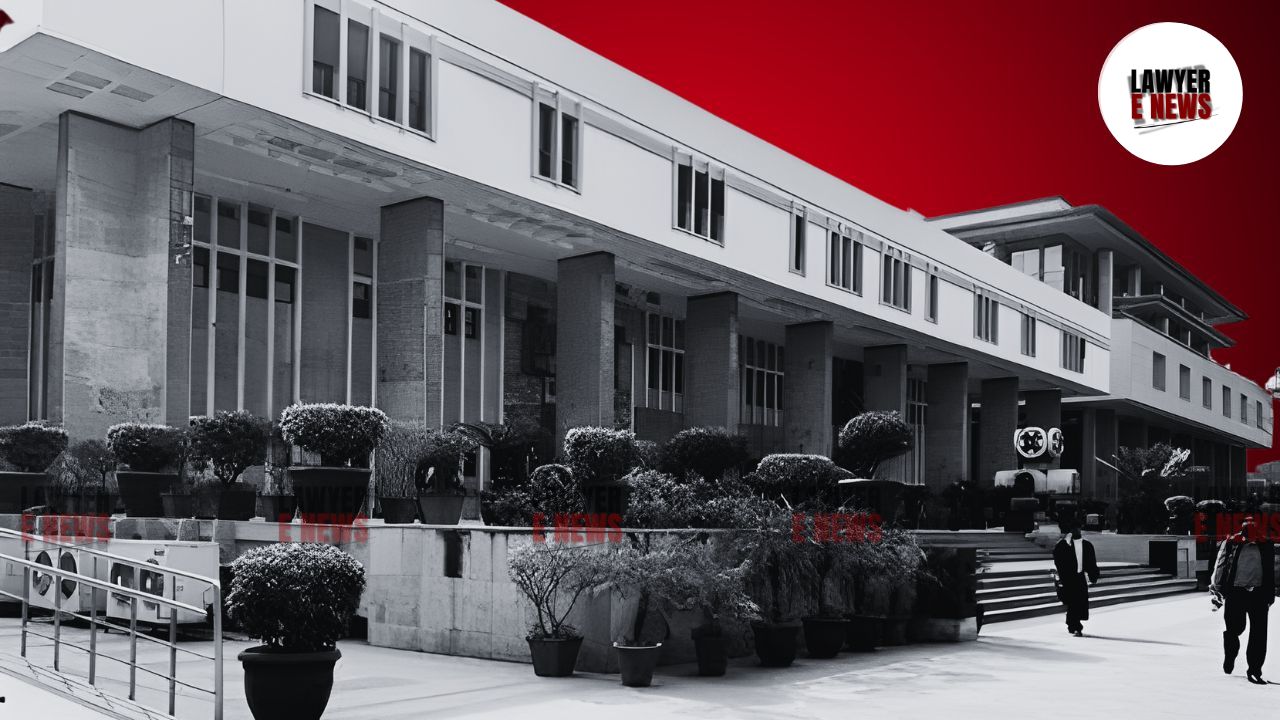-
by Admin
15 February 2026 2:16 AM



In a significant judgment, the Delhi High Court has quashed reassessment notices issued to Divine Infracon Private Limited for the assessment years 2010-11 and 2011-12. The court found that the Assessing Officer (AO) had initiated reassessment proceedings solely on the basis of a valuation report by the District Valuation Officer (DVO) without any further application of mind. The bench of Justices Yashwant Varma and Ravinder Dudeja ruled that such reliance on the DVO’s report, without consideration of the assessee’s financial records, does not meet the "reason to believe" threshold required under Section 148 of the Income Tax Act.
Divine Infracon Private Limited, engaged in real estate and hospitality, was subject to a search and seizure operation under Section 132 of the Income Tax Act in 2010. The company declared a 'Nil' income for AY 2010-11 and an income of ₹12,87,070 for AY 2011-12. During original assessments, the AO determined income of ₹35 crores and ₹14,76,960 for the respective years.
Subsequent reassessment notices under Section 148 were issued on 30th March 2015, based on a DVO report estimating the investment in the company’s property at ₹211,99,57,449, a figure much lower than the value declared by the company under "Fixed Assets and Capital WIP" (₹592,13,59,681). Divine Infracon contended that this valuation was incorrect, and the reassessment lacked any substantive material evidence.
The Court emphasized that the power to reopen assessments is not unrestricted. It noted that reopening assessments after a significant lapse of time is a serious matter, requiring a strong “reason to believe” that income has escaped assessment. In the absence of such grounds, the court stated, the action would be arbitrary.
The court underscored that a valid reassessment under Section 147 requires a "live link" between the material before the AO and the belief of income escapement. The court ruled that the AO’s reliance solely on the DVO’s valuation report failed to meet this standard.
The Court criticized the AO for not applying his mind to the DVO's report and Divine Infracon’s books of account. Justice Ravinder Dudeja observed, "There is no statement or discussion by the AO as to what was the basis and why he should proceed on the valuation report." The Court stressed that merely acting on the DVO’s estimate, without scrutinizing the company’s detailed financial records, was insufficient grounds for reopening the assessment.
The court referred to multiple Supreme Court rulings, including Dhariya Construction Co. and Bawa Abhai Singh, which held that while a valuation report can trigger reassessment, the AO must independently apply his mind to the facts. The Court concluded that, in this case, the AO's reliance on the DVO report, without further examination, amounted to a mere suspicion, not a "reason to believe."
The Court elaborated on the legal requirements for initiating reassessment proceedings under Section 147. It reiterated that reassessment cannot be undertaken based on vague or inadequate information, emphasizing the need for "tangible material" to support the AO’s belief. The Court pointed out that a DVO’s report, by itself, cannot constitute a basis for reopening an assessment unless corroborated by concrete evidence or financial discrepancies in the assessee’s records.
Justice Dudeja observed: "The reasons do not reflect that the AO has applied his mind to ascertain whether in fact the assessee had already declared the value of the property correctly. Therefore, the assumption that the income of the petitioner has escaped assessment is wholly arbitrary and misconceived."
Justice Ravinder Dudeja: "The opinion of the DVO per se is not an information for the purposes of reopening assessment under Section 147 of the Income Tax Act, 1961."
"Expression ‘reason to believe’ does not mean a purely subjective satisfaction on the part of the AO. The reason must be held in good faith and cannot be merely a pretence."
This ruling reinforces the judicial standards required for reopening assessments under Section 147 of the Income Tax Act. The Delhi High Court’s decision highlights the importance of the AO applying independent judgment rather than relying on valuation reports without proper scrutiny of the assessee’s records. The judgment will have broader implications for reassessment proceedings, reminding tax authorities to base their actions on concrete evidence rather than presumptions.
Date of Decision: 09 September 2024.
Divine Infracon Private Limited vs. Deputy Commissioner of Income Tax
